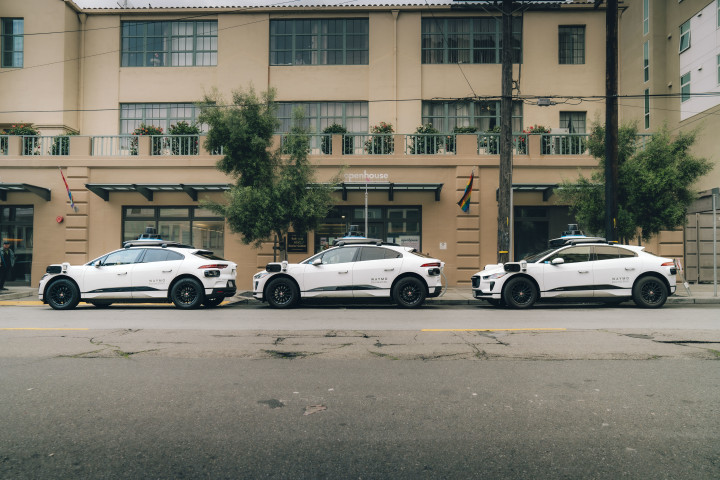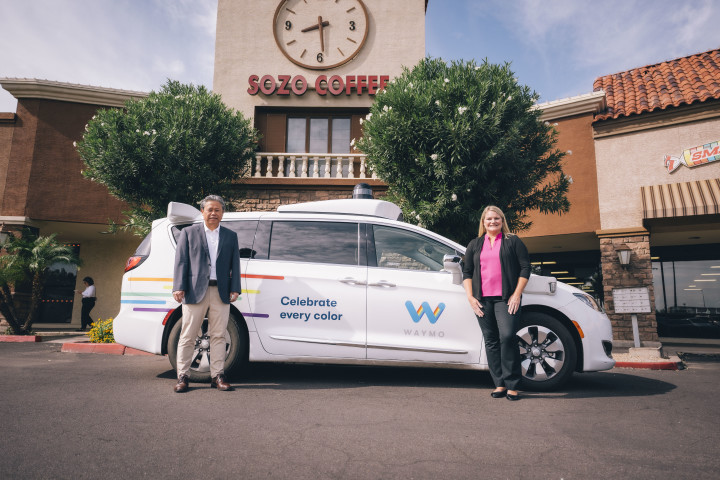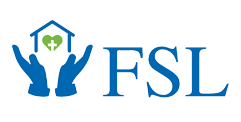A Senior and Formerly Unhoused Mechanic Tries Out Autonomous Driving
Play VideoRead
Clayton's Story
By all accounts, Clayton, a Phoenix man in his 70s, is flourishing. He resides in a close-knit, affordable housing community called Acacia Heights that hosts game nights and potlucks once a month to bring its residents closer together. He serves as a volunteer on the board of nonprofit Circle the City that provides life-saving healthcare to unhoused individuals.
“I feel grateful for every day I'm allowed to wake up,” Clayton says.
It’s hard to imagine that not too long ago, Clayton was also unhoused and a client of Circle the City. Circle the City empowered him to find his home at Acacia Heights through another nonprofit, Foundation for Senior Living (FSL), which provides assistance to Phoenix seniors and people with disabilities and access to affordable housing.
“The residents here are really good at looking after each other,” Clayton says, adding that he loves the community’s amenities like a common room, computer lab, and easy access to downtown Phoenix. “It's a really, really good feeling to me.”
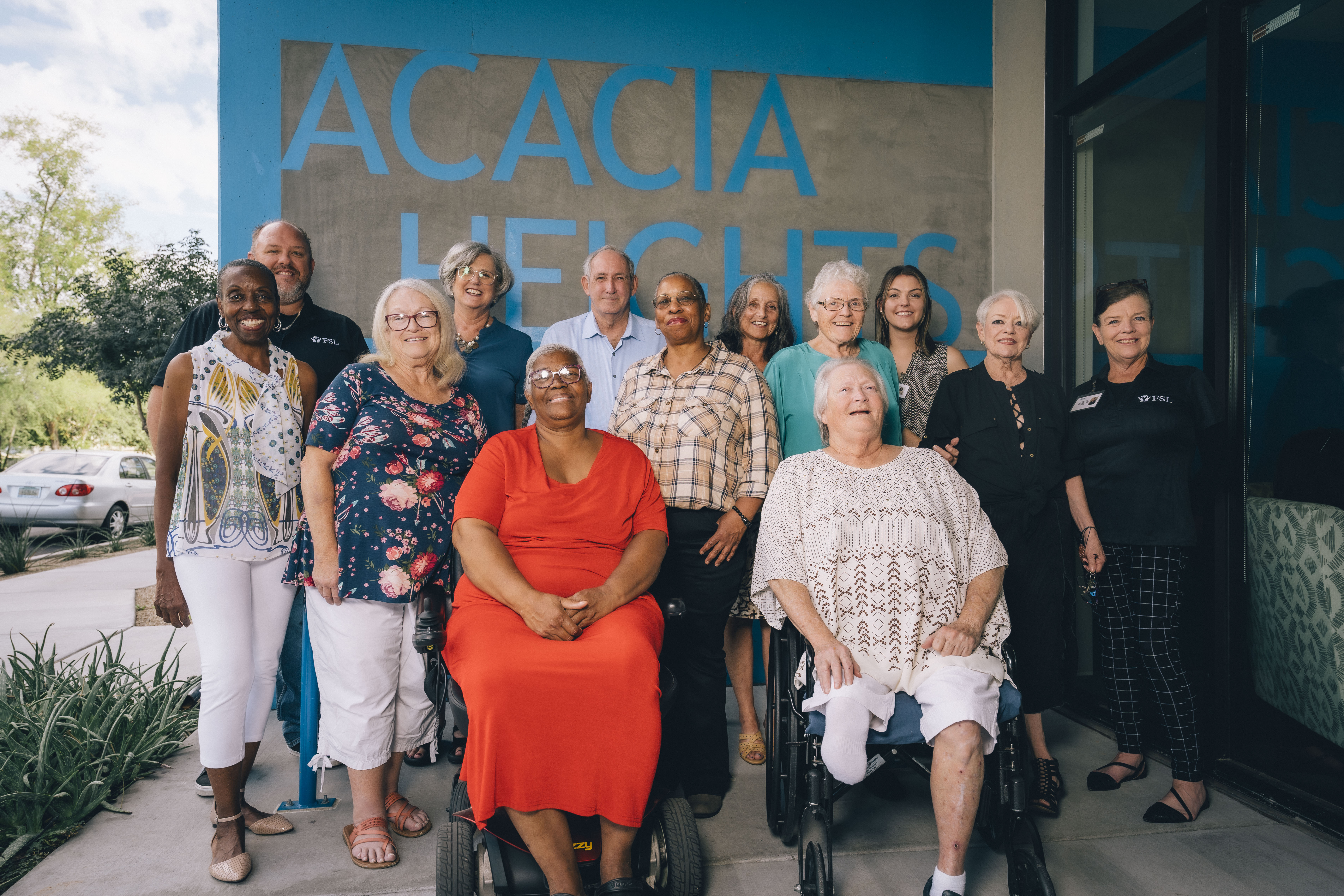
In contrast to when he was unhoused, Clayton now has many community connections, and volunteering is especially meaningful to him.
“It's my way of giving back,” Clayton explains.
Clayton, who once worked as an auto mechanic (who once put a totally torn-apart engine back together in two hours and 10 minutes!) believes in a lifelong commitment to trying new things. He put that into action recently when he caught a Waymo One ride to Circle the City in an autonomously driven vehicle.
“People said, ‘You can't do that.’ And I said, ‘Don't tell me I can't. That's not in my book.’”
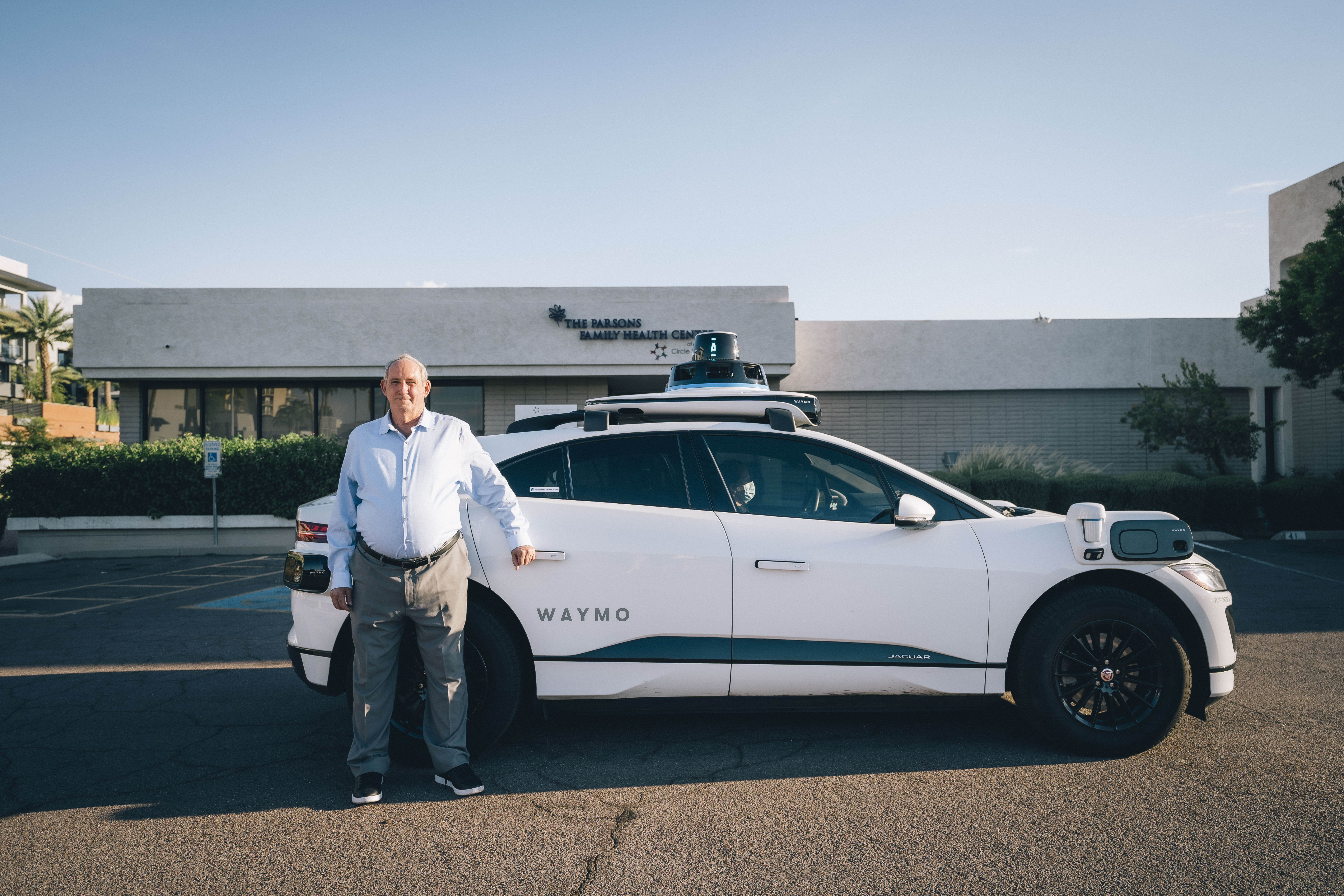
Tami Bohannon, CEO of Foundation for Senior Living, which manages Acacia Heights, says FSL is partnering with Waymo to explore how the technology could help residents like Clayton, many of whom do not drive.
“The partnership with Waymo allows FSL participants to stay connected to the larger community,” Tami emphasizes.
Waymo’s autonomous driving technology is designed to be conscientious, constantly vigilant, follow road rules, and make safe driving decisions. Not only could the technology offer seniors who can no longer drive an on-demand safe transportation option, it also could help seniors with limited mobility get the final miles from their homes to public transportation stations by providing one possible solution to the “last mile problem.” Waymo has worked with Phoenix’s public transit system on piloting models for how the technology could close transit gaps.
Tami says the population that FSL serves is expanding, and so will the need for assistance and tools that help people live independently.
“We have a silver tsunami coming. By 2030, there will be 42 million seniors, people over the age of 65 in the United States,” Tami explains. “I do know 90% of seniors tell us they want to live independently.”
Over the last 30 years, FSL has developed 25 affordable apartment communities for seniors and people with disabilities in Phoenix, including Acacia Heights.
Tami says she believes that technology like Waymo’s could be an extension of the services FSL provides already.
“When I think of Waymo's partnership with FSL, it is actually an extension of our caregiving resources,” Tami says. “If a senior has the ability to use an app, call a Waymo, and take a ride to go to the doctor, an exercise class, or to visit a friend or family member… it's kind of a new way to look at caregiving.”
When I think of Waymo's partnership with FSL, it is actually an extension of our caregiving resources. If a senior has the ability to use an app, call a Waymo, and take a ride to go to the doctor, an exercise class, or to visit a friend or family member… it's kind of a new way to look at caregiving.
Tami says the partnership reflects FSL’s solutions-focused, innovative values.
“Whether that solution is an autonomous car that picks up one of our participants or residents, or we would love to explore robotics and be able to have some form of robotics help us with our caregiving duties, whether it's in someone's home or in one of our centers, we're all about embracing innovation and looking at the world differently.”
Tami says she realized some people might be afraid of autonomous driving technology like Waymo’s, but that life is much richer when people don’t let fear stand in the way of new ways of doing things.
“Think about how your life would be different if you had this kind of technology, this innovative technology available to you,” Tami urges, adding that Clayton is a great example of someone trying new things. “We can't let fear drive us, but we can let an autonomous car drive us.”
We can't let fear drive us, but we can let an autonomous car drive us.

